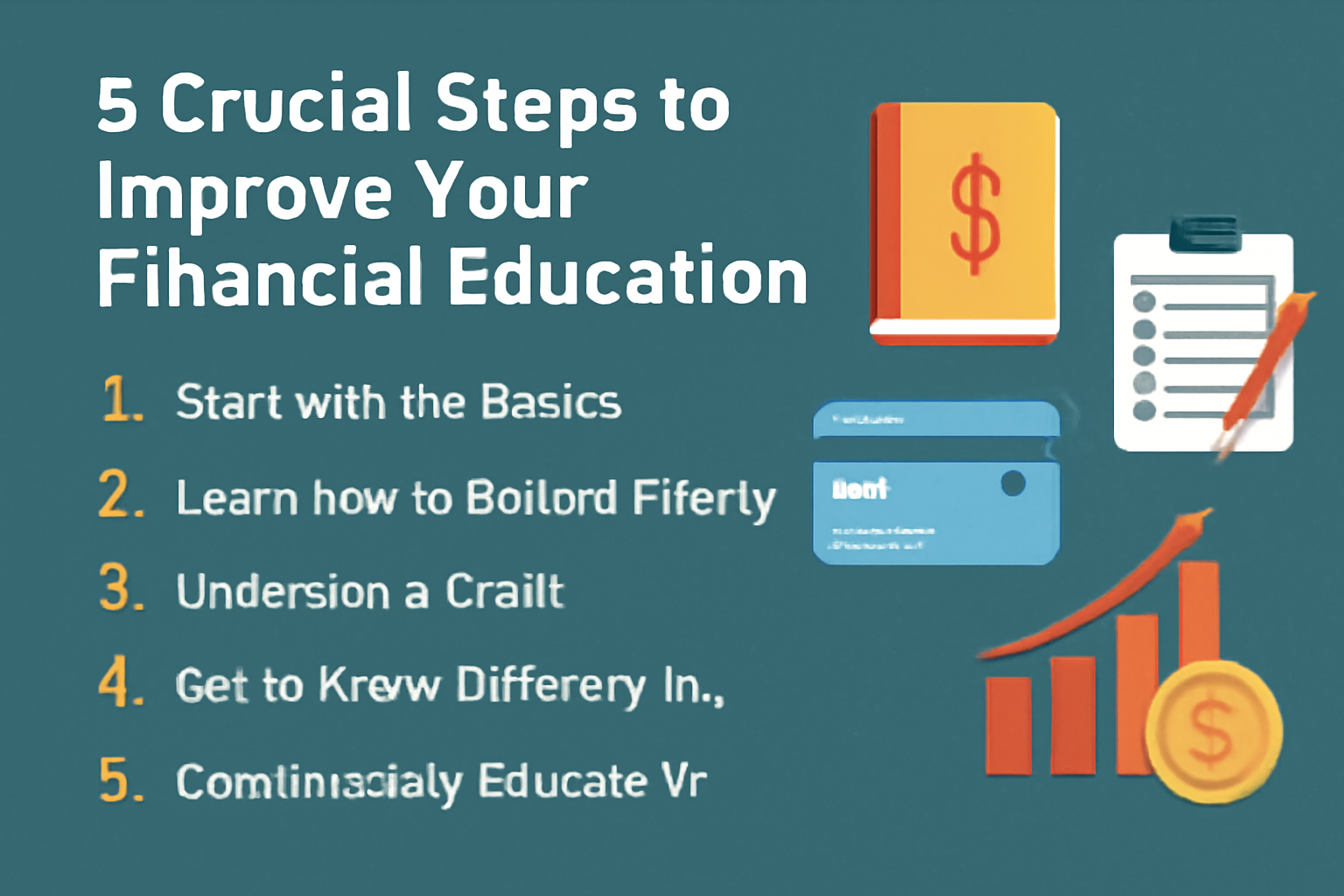Improving your financial education is one of the most valuable investments you can make for your future. A solid understanding of personal finance can help you make informed decisions, avoid common pitfalls, and achieve financial independence. If you’re just starting out, these five crucial steps will set you on the right path.
1. Start with the Basics of Personal Finance
To improve your financial education, you need to build a strong foundation of basic financial concepts. Start by understanding key terms like budgeting, saving, debt management, and interest rates. These are the building blocks of personal finance, and they will help you make informed decisions moving forward.
You can begin by reading beginner-friendly books or articles, watching educational videos, or even taking free online courses. Websites like Khan Academy and Coursera offer great resources to get started.
2. Learn How to Budget Effectively
A crucial part of financial education is learning how to budget. Budgeting helps you track your income, expenses, and savings. With a solid budget in place, you’ll be able to control your spending, save for your goals, and avoid unnecessary debt.
There are several budgeting methods to consider, such as the 50/30/20 rule or zero-based budgeting. The key is to find a method that works for you and stick to it consistently. Using budgeting apps like Mint or YNAB (You Need A Budget) can simplify the process by automating some of the calculations.
3. Understand Credit and How to Build It
Credit is an essential part of personal finance, and understanding how it works is a major aspect of financial education. Learn the basics of credit scores, credit reports, and how lenders use them to assess your borrowing risk. Your credit score plays a critical role in your ability to secure loans, credit cards, and even rent a house or apartment.
To improve your credit score, focus on paying your bills on time, keeping your credit utilization low, and avoiding opening too many new accounts at once. Monitoring your credit report regularly is also important to spot any errors or fraudulent activity.
4. Get to Know Different Types of Investments
As you grow in your financial education, learning about investments will become crucial. Investing allows you to grow your wealth over time, and there are various types of investments to explore, including stocks, bonds, mutual funds, and real estate.
Start by learning the basic principles of investing, such as risk vs. reward, diversification, and compounding interest. If you’re new to investing, consider starting with low-risk options like index funds or exchange-traded funds (ETFs). Once you’re comfortable, you can explore individual stocks and more complex investment vehicles.
5. Continuously Educate Yourself
Financial education is an ongoing process. Markets change, new tools and technologies emerge, and personal finance strategies evolve over time. To stay ahead, make a habit of continuing your financial education. Read books, follow blogs, attend webinars, and listen to podcasts on finance. Join online communities where people discuss financial topics, share advice, and ask questions.
Being proactive about learning will ensure that you can adapt to changes in the financial landscape and make better financial decisions.
Improving your financial education is a lifelong journey, but the rewards are immense. By taking these five crucial steps, you can build a strong foundation of financial knowledge that will help you navigate life’s financial challenges with confidence and success.
